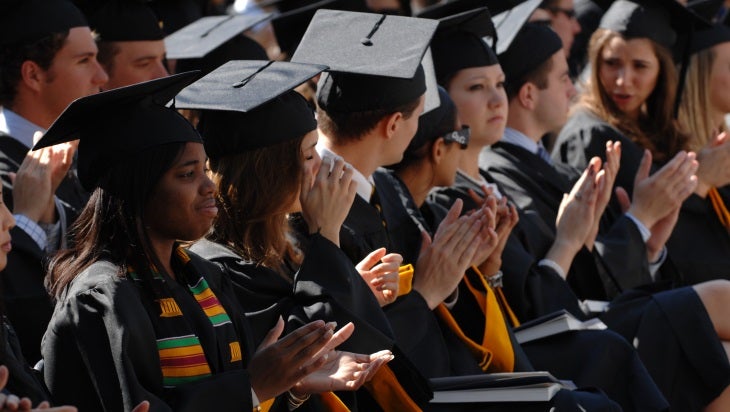Economy Needs Boost From College-Educated Workers
The American economy needs far more workers with college degrees than data from the Bureau of Labor Statistics (BLS) would suggest, according to a recent report by Georgetown researchers.

The BLS data suggest that there are 22 million adults in this country who attained a college degree but didn’t need it,” says Jeff Strohl, research director at Georgetown’s Center on Education and the Workforce (CEW) “But the economy did need these college graduates, who earn an average of ,000 a year, much more than the average high school graduate.
The U.S. Census Bureau estimates of education demand in 2014 are over twice as high as BLS projections of education demand for 2022, according to the report.
That translates to an additional 34 percent for college-educated workers in Washington, D.C., 33 percent more in Maryland and an additional 32 percent in Virginia than the BLS estimates.
The fault doesn’t lie with BLS but with the people who misuse their data, Strohl says.
In isolation, the BLS’ entry-level education requirements suggest that the economy needs many fewer college graduates than the Center’s projections show,” he says. “The evidence demonstrates clearly that the economic value of a college education has increased substantially and that the economy needs more college graduates, not fewer.
Strohl says a top BLS official recentlystatedthat “the data produced on education and training requirements by BLS are not intended to gauge the need for higher education among future workers.
CEW is the only public-facing body that projects workforce demands for postsecondary certificates and degrees.
The BLS data, Strohl says, continues to be misinterpreted as projections that can negatively impact the actions of a growing number of states interested in setting goals for postsecondary credentials tied to labor market demand.